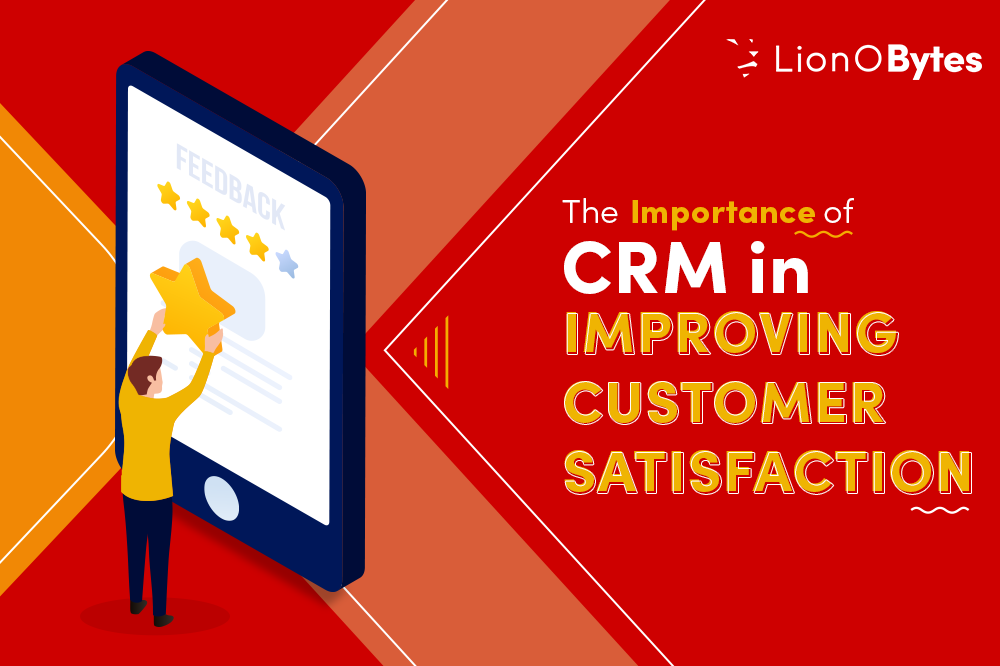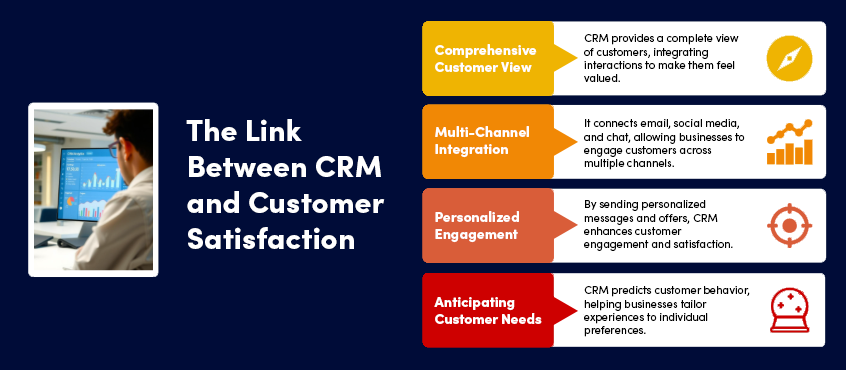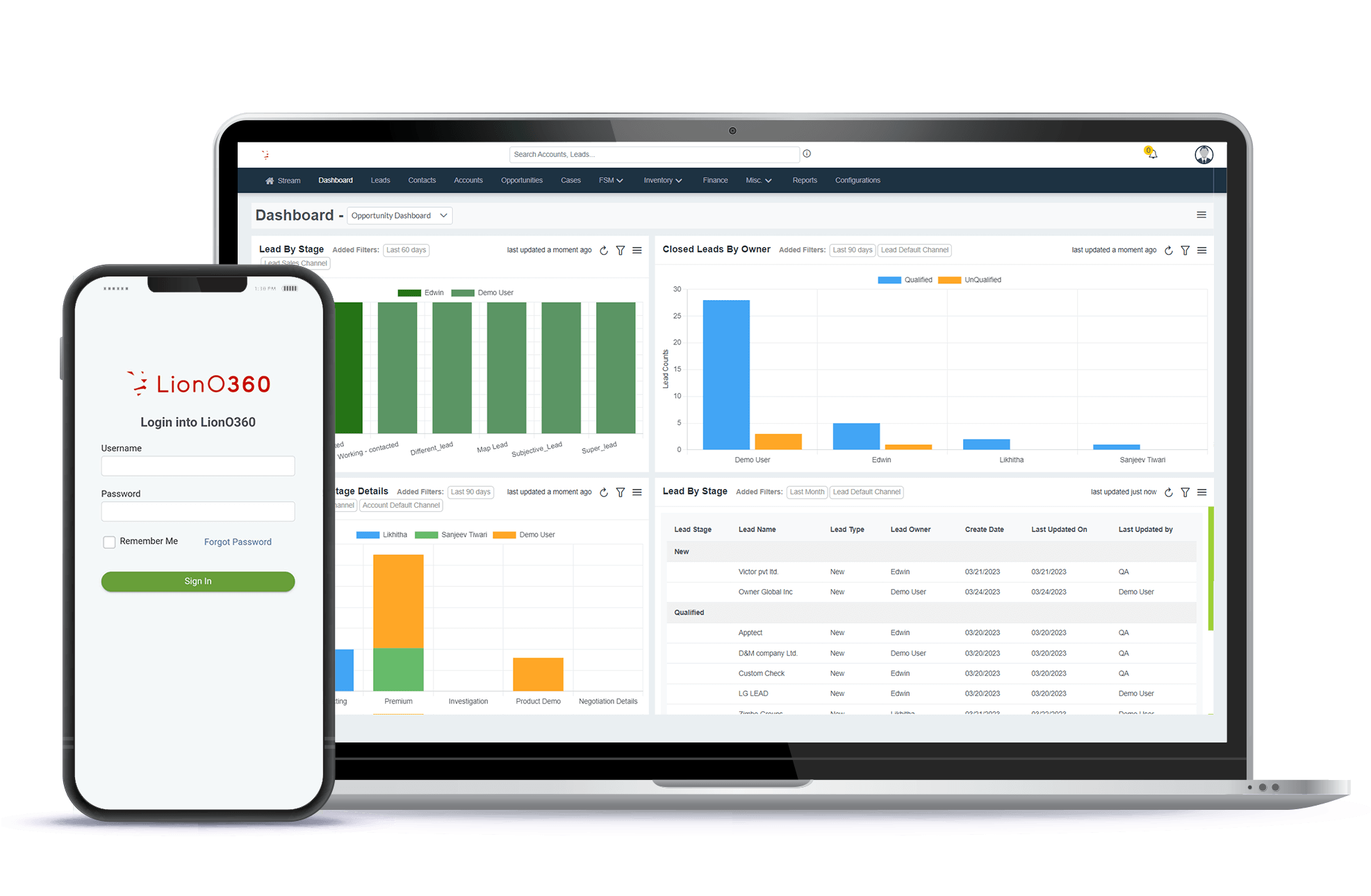
With digital transformation growing phenomenally, the customers expect seamless and personalized experiences on all touchpoints. So, whether it means answering their queries in no time, suggestions on various products, or ensuring that they are getting their quality of service consistently, the CRM system allows businesses to capture these opportunities. It empowers businesses to understand consumer behavior, preferences, and pain better, helping them anticipate customer needs and proactively provide solutions.
This blog discusses how CRM can be used not only to enhance everyday operations but also set the stage for the development of lasting customer relationships. Enabling enhanced communication channels to help keep customers, CRM is an integral factor in allowing businesses to stay ahead in providing excellent customer service. Come, let us discuss this in detail and see how CRM can help build customer satisfaction, helping businesses grow and succeed.
Importance of CRM in Improving Customer Experience
Businesses will keep using CRM to strengthen customer relationships, with the technology improving over time. Adopting CRM will lead to better customer satisfaction and help businesses become industry leaders. Let us discuss the role of CRM in enhancing customer satisfaction in detail. Here you go:
1. Personalized Customer Interactions
One powerful component of a CRM is its ability to keep detailed notes about its customers. When businesses build a substantial understanding of their customers, they are more likely to create a more meaningful and relevant customer experience. A CRM can keep track of customer purchasing history, preferences, behaviors, and feedback which can be utilized in creating communications, promotions, and offerings for each customer. Customers appreciate you acknowledging their preferences and needs. In fact, customers can be so emotionally attached to a brand, that businesses can internally anticipate their customers' needs.
2. Faster Response Times and Efficiency
In a world that expects instant gratification and prioritizes speed, customers expect a faster response time to customer questions, concerns, or issues. A CRM provides businesses with the necessary infrastructure to provide a faster response time and improve processes. A centralized communication strategy that uses multiple modalities, such as email, live chat, and social media, allows customer service representatives to respond to inquiries in real time. CRM has built in automated features that can respond to frequently asked questions to mitigate not needing a customer service representative. Improved organizational efficiency, available resources for meeting customer service responses, decreased wait time means increased customer satisfaction and the responsiveness demonstrates importance to the organization.
3. Consistent and Seamless Communication
A major factor that contributes to customer satisfaction is consistency in communication. CRM systems bridge this gap by centralizing all customer interactions in one place. This ensures that all team members have access to the same up-to-date information about the customer’s journey. A unified approach prevents confusion and helps to create a seamless, consistent experience across all touchpoints.
4. Anticipating Customer Needs
CRM systems provide businesses with valuable data that can help anticipate and predict customer needs. By analyzing historical interactions, buying patterns, and customer feedback, CRM can identify trends that allow businesses to proactively reach out to customers before they even express a need.

5. Tracking and Measuring Customer Satisfaction
CRM systems also provide companies with powerful tools for monitoring customer satisfaction. Through surveys, feedback forms, and support ticketing systems, businesses can track how happy their customers are with their products or services. This real-time feedback allows companies to make data-driven decisions, pinpoint areas for improvement, and address any dissatisfaction before it escalates into customer churn.
6. Empowering Customer Service Teams
A well-implemented CRM system empowers customer service representatives by providing them with easy access to detailed customer information. With a CRM, customer service agents can view a customer’s past interactions, preferences, and issues all in one place. This enables them to handle inquiries more efficiently, and with greater knowledge, which enhances the customer experience. Furthermore, CRM systems provide agents with tools for collaboration and problem-solving, which can speed up issue resolution. The system can help route complex issues to specialized agents or departments, reducing the chances of long wait times and multiple transfers.
7. Creating Loyalty Programs
CRM systems can also play a key role in customer retention by helping businesses create loyalty programs. By tracking customer activity and spending, businesses can identify their most loyal customers and offer them special incentives such as discounts, exclusive promotions, or timely access to new products. A loyalty program that is integrated with a CRM system can automatically award points, manage customer rewards, and send personalized offers to increase retention. These programs not only make customers feel valued but also encourage repeat business, thereby enhancing customer satisfaction.
8. Better After-Sales Support
Customer satisfaction does not end once the sale is made. After-sales support is critical in ensuring that customers remain happy and loyal to a brand. CRM systems enable businesses to provide better after-sales service by tracking customer issues, providing easy access to troubleshooting resources, and following up with customers to ensure that their issues have been resolved.
When a company can follow up after a purchase, ask for feedback, and offer continued support, it shows that they care about their customers’ long-term satisfaction. This results in higher retention rates, positive word-of-mouth recommendations, and increased chances of repeat business.
9. Data-Driven Insights
CRM systems provide valuable insights into customer behavior through reporting and analytics. Businesses can gain a deeper understanding of customer preferences, purchase history, and pain points. This data-driven approach allows companies to improve their products, services, and processes in a way that better aligns with customer expectations. By making improvements based on customer data, companies can improve their offerings and address any issues or gaps in service. This proactive approach contributes to enhanced customer satisfaction and positions the company as one that genuinely cares about its customers’ needs.
As we discussed, CRM plays a key role in enhancing customer satisfaction. It helps in improving customer’s loyalty and trust by enabling customized interactions, quick response, maintain communications and provide proactive solutions. The CRM system places a tremendous emphasis on customer satisfaction and improves the ability of companies to provide outstanding, world-class service to satisfy customers’ changing requirements, ensuring their own long-term success in the competitive marketplace.
Maximize Your ROI with LionO360 AI-Powered CRM Solutions
LionO360 CRM's AI-powered solutions will enable businesses to achieve increased returns on investment (ROI) by enhancing and personalizing the customer experience quickly and seamlessly. Through the utilization of advanced AI technology, LionO360 helps companies gain foundational insights into customer behavior, wants, and needs, thereby allowing for total communication directed at customer preferences within personalized solutions.
LionO360's CRM software empowers businesses to build deeper meaning and loyalty among customers, drive better engagement, and ultimately cultivate customer loyalty through interaction. The ability to streamline workflows, automate basic functions, and deliver data in real time has ensured the business can respond promptly and accurately to customer-related matters, which improves satisfaction and fosters repeat purchases as well as word-of-mouth referrals.
The AI enables additional personalization and communication factors by defining those types of needs, behaviors, and predictive issues before they arise during customer interactions. Overall, it creates a customer experience that is seamless and satisfying, ensuring customers are retained securely with far greater value.
Talk to our CRM expert now @ +91 92661 33544 and schedule a free CRM demo to know more.
Frequently Asked Questions
What is the role of CRM in improving customer satisfaction?
Customer Relationship Management (CRM) systems play a crucial role in improving customer satisfaction by enabling businesses to understand and meet customer needs more effectively. CRM helps store and analyze customer data, allowing companies to personalize interactions, track preferences, and resolve issues faster. With CRM, businesses can provide tailored communication and services, respond quickly to inquiries, and ensure consistent follow-up, all of which create a more satisfying and positive experience for customers.
What is customer satisfaction's importance?
Customer satisfaction is vital because it directly impacts loyalty, retention, and long-term revenue. Satisfied customers are more likely to return, recommend your products or services to others, and become advocates for your brand. High levels of customer satisfaction also contribute to lower churn rates, better reviews, and a competitive edge in the marketplace. Ultimately, a focus on customer satisfaction leads to increased customer lifetime value and overall business success.
How does CRM help customer service?
CRM systems help customer service teams by providing a centralized hub for customer information, interactions, and history. This allows customer service representatives to access relevant details quickly and efficiently, offering faster resolutions and more personalized assistance. CRM tools also facilitate task automation, tracking customer queries, and offering real-time insights into service performance. As a result, businesses can deliver a higher standard of service, respond to issues promptly, and improve the overall customer experience.
How does CRM help find new customers?
By tracking customer behavior and interactions, businesses can discover trends and target potential customers who are most likely to be interested in their products or services. CRM systems also streamline lead generation, segmentation, and follow-up processes, allowing sales teams to prioritize and engage with high-value prospects. With LionO360 CRM, businesses can create more effective marketing campaigns and outreach strategies to attract new customers and grow their client base.









